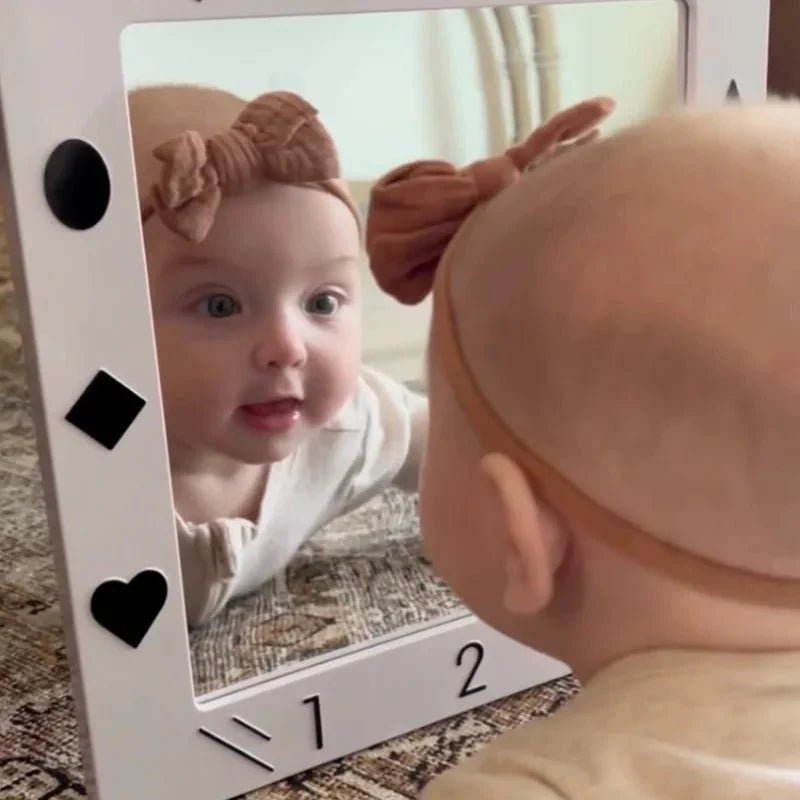In the enchanting world of early childhood development, simple games often hold profound benefits. Peekaboo, a timeless favorite among caregivers and infants alike, goes beyond its surface level of amusement. It fosters crucial developmental skills while nurturing the bond between caregiver and child. Additionally, integrating mirror play into peekaboo sessions can amplify these benefits, creating a delightful and enriching experience for both parties involved.
Peekaboo: More Than Just a Game
At its core, peekaboo is a game of anticipation and surprise. The simple act of covering and uncovering one's face prompts a range of reactions from infants - from giggles of delight to curious stares. But beyond the laughter, peekaboo offers a myriad of developmental advantages:
- Social Development: Peekaboo provides infants with an early lesson in social interaction. Through this game, they learn about turn-taking, a foundational skill for communication and relationships. Babies begin to understand the rhythm of interaction, as they eagerly wait for their turn to reveal themselves or react to the caregiver's actions.
- Emotional Regulation: The element of surprise in peekaboo helps infants learn to regulate their emotions. As they experience the sudden disappearance and reappearance of the caregiver's face, they develop resilience and adaptability in managing unexpected events.
- Object Permanence: Peekaboo assists in the development of object permanence, the understanding that objects continue to exist even when they cannot be seen. When the caregiver disappears behind their hands or a cloth, infants begin to grasp this concept as they eagerly await the reappearance, realizing that the caregiver has not vanished but simply hidden from view.
- Bonding: Perhaps most importantly, peekaboo strengthens the bond between caregiver and child. The shared laughter and engagement create moments of joy and connection, fostering a sense of security and trust in the infant-caregiver relationship.
Enhancing the Experience with Baby Mirror Play
Integrating mirror play into peekaboo sessions can enhance the benefits and add an extra layer of fascination for infants. Mirrors provide immediate feedback, allowing babies to explore their own facial expressions and movements while engaging in the game. Here's how mirror play complements peekaboo:
- Self-Recognition: Mirror play facilitates self-recognition in infants. As they observe their reflections during peekaboo, they begin to understand that the playful face peeking back at them is their own. This realization is a significant milestone in self-awareness and identity formation.
- Visual Tracking: Baby Mirrors encourage infants to practice visual tracking as they follow the movements of their caregiver's face and their own reflections. This strengthens their visual processing skills and enhances eye coordination.
- Cognitive Development: By integrating mirrors into peekaboo, caregivers can introduce concepts of symmetry and reflection, laying the groundwork for future cognitive development.
In essence, the combination of peekaboo and peekaboo with baby mirror play offers a holistic approach to infant development, encompassing social, emotional, cognitive, and perceptual skills. Moreover, it creates joyful moments of connection between caregivers and infants, fostering a nurturing and supportive environment for growth. So, the next time you engage in a game of peekaboo with a little one, consider adding a baby mirror to amplify the fun and learning experience. After all, in the world of infant development, the simplest of games often hold the most profound treasures.

